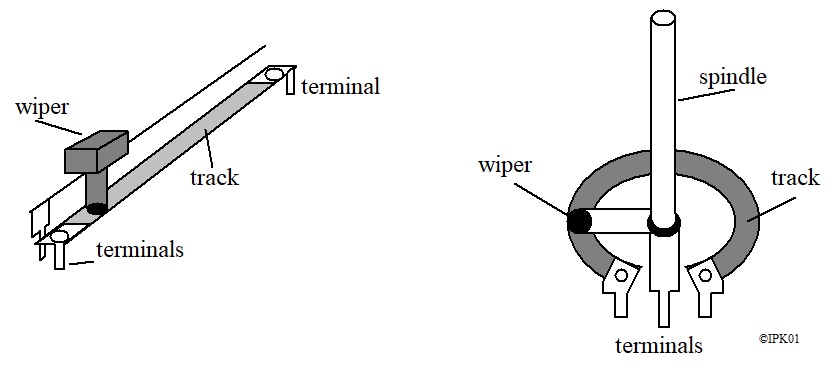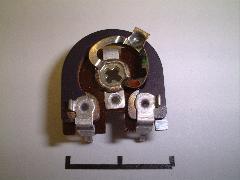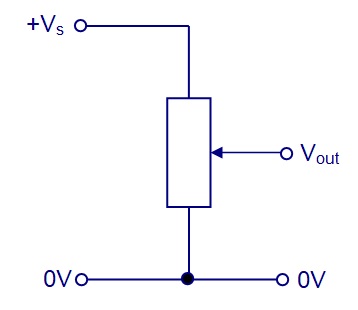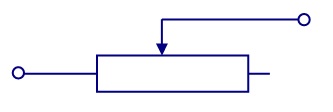
Potentiometers ('pots') and
Variable resistors.

A potentiometer/variable resistor is a convenient means of changing a resistor value.
It consists of a track of fixed resistance and a wiper that moves over the track.
The track is usually made from carbon mixed with a cermet material, conductive plastic or wire.
There are two main types, rotary and linear variable resistors as shown below.

Wire wound potentiometers are used for low values of resistance and when they are likely to become warm/hot.

Carbon/ceramic/conductive plastic types of potentiometer are available with Linear or Logarithmic tracks.
The logarithmic track variable resistors are often used as volume controls on audio systems since their adjustment matches
the change in volume as perceived by the ear.

All types of potentiometer can be used directly as voltage dividers by connecting the ends of the track across the power-supply, and taking the output from the wiper terminal and one of the end of track terminals as below.

A potentiometer can be used as a variable resistor by using one of the track terminals and the wiper.
